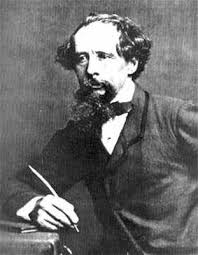A novel is made up of quite a few elements, among them characterization, dialogue, point of view, setting, and so on. But in my mind, the most important element—without question—is the story’s opening, what we call the HOOK, or more specifically, the narrative hook. If you don’t engage your readers from the outset, they’re not going to care about your characters, your POV, or anything else, for that matter. That’s because they won’t even get to page two.
Think I’m kidding? In addition to working one on one with writers I’ve also lectured at colleges and writers’ conferences since the Stone Age. Often I’ve brought literary agents in to address my classes, and I’ve spoken with many of them at conferences through the years. Way back, the answer to the question, “How do you judge a manuscript?” went something like, “I read fifty to a hundred pages and then decide if I want to represent it.” Okay, that seems reasonable.
But that evolved (or perhaps devolved?) as the years passed and agents became the primary filters for busy publishing house editors, which in turn made them overburdened. Soon I began to hear twenty-five pages, or three chapters, which became the first ten pages, which became five pages, until finally…
I’m not sure when this began—perhaps a decade ago. I do know that I was already informing writers at a conference that I lectured at around seven or eight years ago of what I referred to as the new Agents’ Mantra.
WRITER: “How do you judge a manuscript?”
AGENT: “I read the first sentence. If I like it, I read the first paragraph. If I like that, I read the first page. If that works for me, I turn the page.”
Say what! Mike, are you pulling our chain? Well, at that same conference I presented a ninety-minute workshop on the opening hook and told that to the attendees. “Are you kidding me?” and “Yeah, right” comprised the majority of responses. Later that day the conference hosted a literary agents’ panel, two  agents from New York, two from California. Someone asked the panel, “How do you judge a manuscript?”
agents from New York, two from California. Someone asked the panel, “How do you judge a manuscript?”
The reply, from one of the New Yorkers (verbatim): “I read the first sentence. If I like it, I read the first paragraph. If I like that, I read the first page. If that works for me, I turn the page.”
I kid you not. Quite a few heads swiveled around to look at me, dazed expressions on their faces. “Guess you were right,” was the unspoken vibe.
So how do we writers make sure our opening hooks are effective? That will be the focus of my next couple of posts. Trust me, I can’t tell all in just one post.
CHARLIE’S HOOK
I mentioned that I’ve been talking to groups about writing since the dawn of time, and I’d like to share this story from a class that I did a long, long time ago. One of the students, a young guy named Charlie, absorbed my hook lecture with great enthusiasm, and his hand shot up. He begged me to let him read the opening to a novel he was working on, as he felt quite proud of it. So I agreed—and oh, did I regret it. For starters, his first sentence went on and on for over one hundred words. He made excessive use of the passive “to be” verbs (“was,” “were,” etc.) to the point of my eyes glazing over. I could go on, but I’ll just say that, sadly, I had to gong Charlie on his hook. The poor kid slammed down his page and stormed out of the room. I saved the page so that I could show future generations of writers how NOT to open a novel. Here is Charlie’s hook:
It was the best of times, it was the worst of times, it was the age of wisdom, it was the age of foolishness, it was the epoch of belief, it was the epoch of incredulity, it was the season of Light, it was the season of Darkness, it was the spring of hope, it was the winter of despair, we had everything before us, we had nothing before us, we were all going direct to Heaven, we were all going direct the other way – in short, the period was so far like the present period, that some of its noisiest authorities insisted on its being received, for good or for evil, in the superlative degree of comparison only.
Okay, you figured out that I’m totally kidding here. This opening to Charles Dickens’ A Tale of Two Cities is one of the most memorable in all of literature.
But AM I kidding? Bottom line is, the sentence DOES go on forever, and it IS loaded with passive verbs, and the question I always ask my writers is, “Would this hook work in today’s publishing climate?” Almost without exception, they say NO. I agree. Why? Because:
“I read the first sentence. If I like it, I read the first paragraph. If I like that, I read the first page. If that works for me, I turn the page.”
In Part Two, what I call “Hook 101,” we’ll break down the hook—what it must accomplish, and some of the options a writer has for achieving this goal of engaging readers.



Anxious to read the next part. Always thought I was impatient, but if I don’t like the first three sentences or so, the shroud descends over the book and usually the author. Too many other books out there not to move on.
You’re right, Pat…Mr. Average Reader is no different than Mr. Average Literary Agent. Little patience, short attention span. That’s why we have to stick that hook in the likes of you! 🙂
As a recipient of the “You need a better hook” lecture myself, I cannot deny its merits or the successful results of taking such admonishment to heart.
(For anyone curious, it meant swapping out the original first chapter entirely with a scene that came later, and then reworking everything accordingly. Multiple reworkings, actually, until it was much better overall.)
However, while I have no regrets on that score, I still cannot deny feeling a twinge of pain at the thought that most forms of entertainment, these days, must conform to the demands of ‘short attention span theater’. Does everything have to be the equivalent of a Happy Meal? If so, what exotic delicacies are we likely never to savor again, be it the best of times or the worst of times? I mean, really…”Yo, dude, you ain’t gonna believe the sh*t that was goin’ down”, doesn’t quite have the same ring to it.
Still, I am looking to reading your next installment, as I have the same issues to deal with all over again. Sigh…
You mean to say, if I go to see a new movie and something doesn’t blow up within the first three minutes, the movie might actually be good? I’d better start sticking around past that three-minute mark! 🙂
Three minutes? If it takes that long for something to blow up, then the preliminary chase scene better be darn good, with lots of collateral destruction before the ‘big bang’. Otherwise, why should we care?
Oh, yeah, it used to be called character development. But in the director’s cut of every movie, that is inevitably the part(s) they cut out. And it’s why those slice-of-life movies only play at the art house.
Things have indeed changed over the last however many years. That is why we need writing coaches like you to whip us into the sort of shape that has a chance of gaining attention in the current market.
Thirty-five years ago a fine UCSD English and Writing professor took me to task for my leisurely opening. His name was John Waterhouse. He said that I needed a hook like ‘ “Damn!” said the Duchess as she knocked the ashes off her cigar.’ Think of everything that’s wrong in the picture painted by that opening sentence. A swearing, cigar smoking Duchess. Who is this woman? We want to know more about her. We’ll keep reading. The advice is even more relevant today given the harsher environment Mike describes, but it’s something that I, too, resist. With my most recent work, much like Kate experienced, the trick was to find, with the Coach’s help, characters and events in the story that made for a better hook. I could have both my artistic integrity, and a product that stood a better chance of reaching its audience, so it can be done. You just have to think of it as one more of the many revisions any author will do.
At least your professor didn’t tell you to open with, “Damn!” she cursed. 🙂
Good thoughts, Mark, thanks.
Of course, Mark, you’re right in claiming that the real trick is maintaining our artistic integrity while still getting the story off the dime in the first paragraph…and then keeping it moving, without losing the important parts. With the Coach’s help, that is precisely what happened with me.
It’s great to have somebody like Mike looking over my shoulder and (when necessary) calling BS on the BS. His suggestions have always improved things.